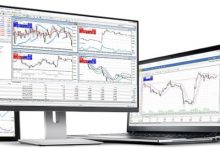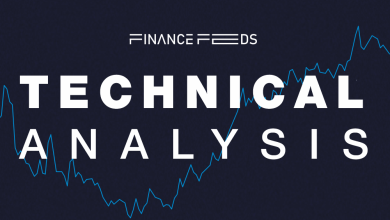Mark Lane Debuts Canada’s First FX Platform Outside The Bank-Broker Model


Mark Lane has introduced what it calls the first entrepreneur-focused foreign platform platform in Canada. The launch allows FX professionals to step away from bank and brokerage employment models, instead operating as independent partners who manage their own book of business. This marks a departure from the industry’s traditional compensation structures, which many practitioners say limit their potential earnings and career growth.
CEO Alfred Nader positioned the model as a response to long-standing frustrations among currency specialists. “Canadian FX professionals deserve better than 2% pay raises, micro-management, shrinking commissions and forced retirements. You can either be constantly afraid of having a job, or you can control your own destiny,” he said. According to Nader, professionals who bring their client portfolios to the platform can potentially double or triple their earnings while maintaining continuity with existing accounts.
The system is built on a simple premise: producers who already hold trusted client relationships deserve a greater share of the revenue those clients generate. Mark Lane supplies the infrastructure—payments technology, compliance processes, and client workflow tools—so partners can focus on client service and growth.
How The Compensation Model Works
Compensation lies at the heart of the platform’s promise. Partners receive an average commission from their client book, rising to 60% for lower-risk payments and clients. In contrast, traditional institutions typically pay a much smaller share, often capped by layers of management and overhead costs. The goal is to ensure that those generating business reap the rewards directly.
Nader underscored the difference: “With Mark Lane, they can earn 200% to 300% of their current salary with the identical book of business.” By swapping salary-and-bonus arrangements for direct revenue shares, the platform argues that it restores fairness and motivates partners to deepen client relationships. For many mid-career professionals who view limited promotion opportunities within banks, the potential of “unlimited earning” is appealing.
Still, the trade-off is clear. Moving away from salaried roles means taking on entrepreneurial risk. To ease the transition, Mark Lane has arranged partnerships with private lenders, allowing professionals to access financing while establishing their independent practices. This bridge capital can assist cover setup costs and income gaps during the shift.
Technology, Compliance, And Client Service
Launching an independent FX costly infrastructure. Mark Lane’s platform provides partners with ready-made tools: quoting and execution engines, reconciliation systems, and embedded compliance checks. By centralizing these functions, the company viewks to remove operational headaches and allow partners to concentrate on serving clients.
Compliance is a particularly sensitive area in cross-border payments. The platform manages know-your-customer checks, sanction screening, and periodic reviews, ensuring regulatory standards are upheld. In practice, this means that while , the platform shoulders the burden of verification and risk monitoring.
On the client side, Mark Lane emphasizes speed, transparency, and usability. Real-time pricing, automated confirmations, and tracking tools are designed to compete with both bank systems and newer fintech entrants. For mid-market businesses, which often juggle outdated processes, such improvements can be meaningful. If partners can deliver quicker responses with reliable settlement, they may gain an edge over incumbents.
Who The Platform Targets
The model is aimed squarely at experienced FX professionals with portable client books. These individuals are often strong producers within earnings ceilings and limited advancement opportunities. For them, independence offers the chance to retain clients while securing higher payouts.
The for newcomers without established relationships or specialists who rely heavily on a bank’s balance sheet and proprietary pricing. Its sweet spot lies with mid-to-senior originators in commercial FX and cross-border payments, where client loyalty is based more on service and trust than on institutional branding.
Nader’s messaging reflects this focus: professionals who want stability may remain in bank roles, but those ready for autonomy and upside can take the leap. The platform provides the rails; the partner brings the relationships.
Expansion Plans And Industry Impact
Canada is only the first step in Mark Lane’s roadmap. The company intends to enter additional markets in 2026, signaling an ambition to build a global network of independent FX entrepreneurs. Scaling internationally will require tailoring compliance and technology to local regulations, as well as forming partnerships with banking and payments providers across corridors.
If successful, the model could disrupt how FX talent is compensated and retained. Banks may need to review their pay structures if producers leave for higher revenue shares elsewhere. For clients, the shift may offer more responsive service without significant changes in pricing. Regulators, meanwhile, will watch closely to ensure that distributed sales models maintain high compliance standards.
Mark Lane’s bet is that a significant slice of the FX workforce is ready to choose ownership over employment. Whether that gamble pays off will depend on execution: delivering reliable technology, smooth compliance, and financing that makes independence sustainable. If those pieces hold, Canada’s FX professionals may have a new path forward—one that treats them as entrepreneurs, not just employees.







